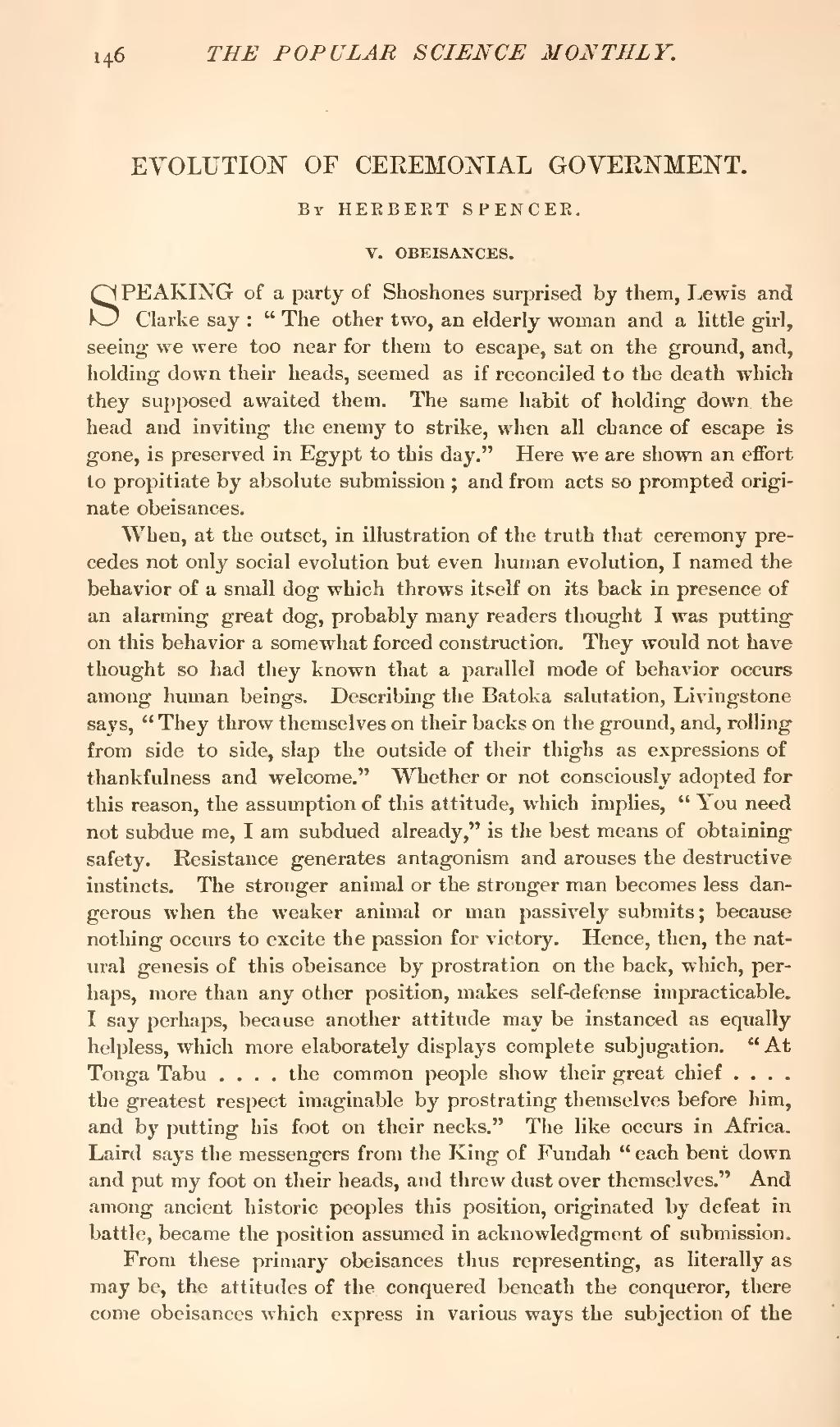| EVOLUTION OF CEREMONIAL GOVERNMENT. |
By HERBERT SPENCER.
V. OBEISANCES.
SPEAKING of a party of Shoshones surprised by them, Lewis and Clarke say: "The other two, an elderly woman and a little girl, seeing we were too near for them to escape, sat on the ground, and, holding down their heads, seemed as if reconciled to the death which they supposed awaited them. The same habit of holding down, the head and inviting the enemy to strike, when all chance of escape is gone, is preserved in Egypt to this day." Here we are shown an effort to propitiate by absolute submission; and from acts so prompted originate obeisances.
When, at the outset, in illustration of the truth that ceremony precedes not only social evolution but even human evolution, I named the behavior of a small dog which throws itself on its back in presence of an alarming great dog, probably many readers thought I was putting on this behavior a somewhat forced construction. They would not have thought so had they known that a parallel mode of behavior occurs among human beings. Describing the Batoka salutation, Livingstone says, "They throw themselves on their backs on the ground, and, rolling from side to side, slap the outside of their thighs as expressions of thankfulness and welcome." Whether or not consciously adopted for this reason, the assumption of this attitude, which implies, "You need not subdue me, I am subdued already," is the best means of obtaining safety. Resistance generates antagonism and arouses the destructive instincts. The stronger animal or the stronger man becomes less dangerous when the weaker animal or man passively submits; because nothing occurs to excite the passion for victory. Hence, then, the natural genesis of this obeisance by prostration on the back, which, perhaps, more than any other position, makes self-defense impracticable. I say perhaps, because another attitude may be instanced as equally helpless, which more elaborately displays complete subjugation. "At Tonga Tabu . . .. the common people show their great chief . . . . the greatest respect imaginable by prostrating themselves before him, and by putting his foot on their necks." The like occurs in Africa. Laird says the messengers from the King of Fundah "each bent down and put my foot on their heads, and threw dust over themselves." And among ancient historic peoples this position, originated by defeat in battle, became the position assumed in acknowledgment of submission.
From these primary obeisances thus representing, as literally as may be, the attitudes of the conquered beneath the conqueror, there come obeisances which express in various ways the subjection of the

